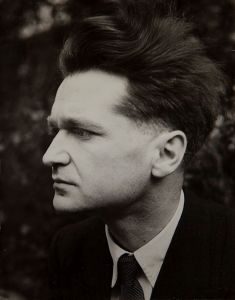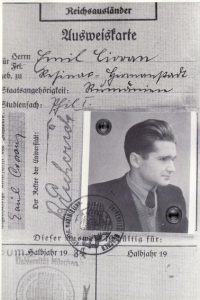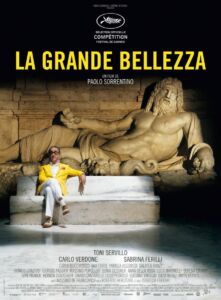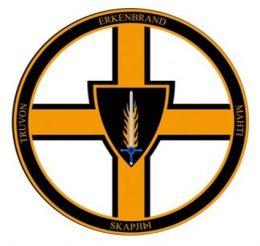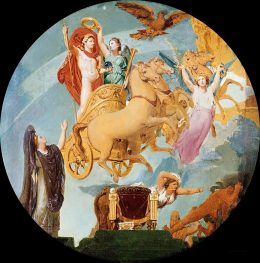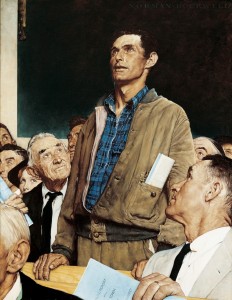Emil Cioran was a Romanian philosopher. Cioran was born on April 8, 1911 in Rășinari (Transylvania, then part of Austria-Hungary and today part of Romania) and died stateless in Paris on June 20, 1995. A nationalist writer in his youth, after the Second World War he achieved fame as a French-language author of essays and aphorisms of a markedly dark and apparently nihilistic bent. (more…)
Author: Guillaume Durocher
-
1.812 slov
English original here
Historická fakta obvykle bývají podstatně paradoxnější a zajímavější, než následně o nich vytvořené mýty. Při čtení vynikající sbírky esejí Julia Evoly jsem narazil na fascinující baronův rozhovor s jiným aristokratem a dlouholetým propagátorem „evropského federalismu“, hrabětem Richardem von Coudenhove-Kalergi. (more…)
-
March 20, 2023 Guillaume Durocher
Buddha a Führer:
Mladý Emil Cioran o NěmeckuEnglish original here
Emil Cioran
Apologie de la barbarie: Berlin – Bucharest (1932-1941)
Paris: L’Herne, 2015Špičkové nakladatelství L’Herne v roce 2015 vydalo velice zajímavý titul: sborník článků Emila Ciorana, otištěných před válkou v rumunských novinách. Cioran, později slavný aforista, byl i v době před spojeneckým vítězstvím bystrým pozorovatelem, kousavým kulturním kritikem a politickým analytikem. (more…)
-
Emil Cioran was a Romanian philosopher. Cioran was born on April 8, 1911 in Rășinari (Transylvania, then part of Austria-Hungary and today part of Romania) and died stateless in Paris on June 20, 1995. A nationalist writer in his youth, after the Second World War he achieved fame as a French-language author of essays and aphorisms of a markedly dark and apparently nihilistic bent. (more…)
-
Emil Cioran
De la France
Paris: L’Herne, 2015This is a strange, vile little book as only Emil Cioran knew how to produce. It was only recently published, in both the original Romanian and in French translation,[1] having been written in 1941 and left to languish for decades in some cardboard box in the Cioran archives. (more…)
-
I am always astounded by how bad the films playing in mainstream cinemas look and, when I occasionally go to see them, I often find that my initial impressions based on the ads or a synopsis were fully justified. So when I enjoy a fairly recent film, it is noteworthy. (more…)
-
The Dutch identitarian group Erkenbrand will be holding its annual conference on November 3, with a list of speakers including Greg Johnson, Millennial Woes, George Hutcheson, and Fróði Midjord. In anticipation of this event, we have interviewed two of Erkenbrand’s organizers below. Tickets to the event may be purchased online here. (more…)
-
1,740 words
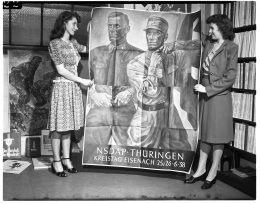 There is no disputing Adolf Hitler was of tremendous importance in determining the course of the twentieth century. Thus, whether one believes the German Führer was the most evil man to have ever lived or if one takes a more nuanced perspective, it is important to try to understand him both as a personality and as representing a world-historical phenomenon. (more…)
There is no disputing Adolf Hitler was of tremendous importance in determining the course of the twentieth century. Thus, whether one believes the German Führer was the most evil man to have ever lived or if one takes a more nuanced perspective, it is important to try to understand him both as a personality and as representing a world-historical phenomenon. (more…) -
It’s that time of year. The French dictionaries Le Petit Larousse and Le Petit Robert (don’t ask me why they are called “petit,” they are huge) are adding various neologisms and foreign loanwords to our beloved langue de Céline.
My interest was particularly piqued by the following new entry: (more…)
-
We are all faced with the challenge of speaking, and living, truths which are felt to be offensive by a great many of our countrymen, not to mention the powers that be. This is not a new problem. By definition, the natural diversity of men means that knowledge of the truth is highly unequally distributed and those who know most about the truth are necessarily a tiny minority. This minority must alone face the prejudices and ignorance of the masses and the violence of the state. (more…)
-
2,079 words
Czech version here
The facts of history are invariably more paradoxical and interesting than the retrospective mythology that comes afterwards. Browsing an excellent collection of Julius Evola’s essays, I came across an astonishing interview which the Baron held with his fellow aristocrat, the long-time “European federalist” Count Richard von Coudenhove-Kalergi. (more…)
-
1,480 words
Snorri Sturluson
Translated by Jesse L. Byock
The Prose Edda
London: Penguin, 2005There is always an air of mystery surrounding the most ancient religious texts. The great bulk were gradually developed through oral traditions, passed down, and then evolved from generation to generation. We typically know little or nothing about their authors, whether the Brahmins who composed the Upanishads or the Greeks’ notoriously elusive “Homer.” (more…)
